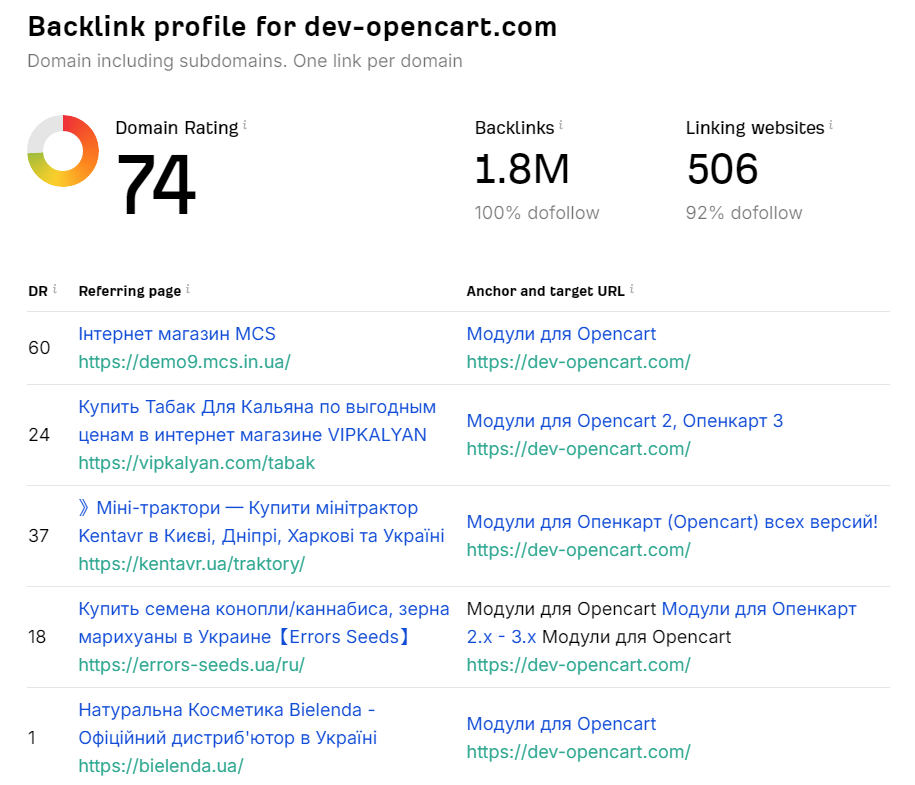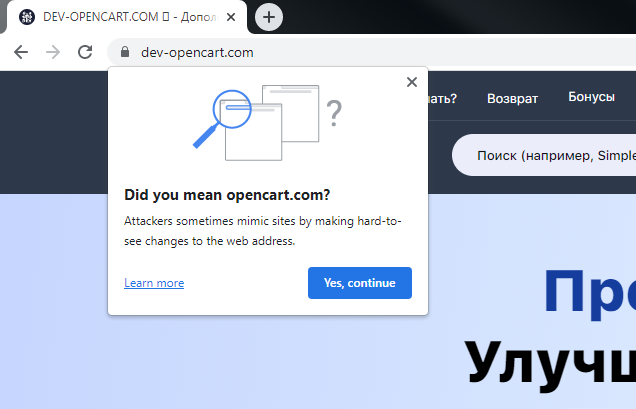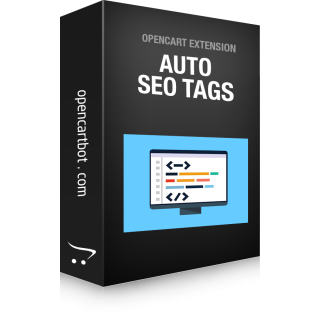Imagine: you've installed a module for OpenCart, everything works, customers are satisfied. And six months later, it turns out that your site has been promoting a pirate resource that sells stolen code for free all this time. And there are hundreds like you. This is exactly what's happening now with victims of "DEV OPENCART" - a pirate site that managed to fool even Google's algorithms.
How the Scheme Worked
The mechanism is both simple and genius. Pirates took official OpenCart modules, cracked their protection, and added their "bonus" - a hidden link with display:none in the footer. Site owners who installed these modules didn't even suspect they were becoming part of a massive SEO manipulation.
The code looked inconspicuous - somewhere deep in the templates, among a bunch of other HTML, something like this was hidden:
<a style="display: none !important;" href="https://dev-opencart.com/">Модули Opencart</a>
Users didn't see this. Browsers didn't display it. But Google indexed and counted every such link as a "vote of trust" from a real site.
The Scale of the Disaster
A SEO-analyst "seoShaolin" conducted his own investigation and did what Google should have done - sent warnings to hundreds of infected sites. Only a superficial check revealed hundreds of victims, but the real numbers are much more striking.
DEV-OPENCART's backlink profile analysis shows shocking results:
- 1.8 million backlinks, with 100% being dofollow
- 506 referring domains, of which 92% pass link juice
- Domain Rating DR 74 - higher than many official marketplaces

And the most interesting part: 100% of these sites contain exactly the hidden links that were embedded in pirated modules' code. These aren't natural links from satisfied users. This is pure parasitism on other people's resources.
You see the analysis of only this domain, but we also noticed that pirates promoted their other resources using this method, for example, a site that sells pirated copies of courses.
Why Google Doesn't React
Here's where it gets interesting. Lumen Database has recorded dozens of DMCA complaints against DEV-OPENCART. Google Chrome even shows a warning "Did you mean opencart.com?" when trying to access the pirate site. But in organic search results, the pirates still occupy top positions.

For most commercial queries like "opencart shipping module" or "opencart payment extension," the pirate site ranks higher than official developers. People who created these modules, invested time and money in development, watch as their product is sold by pirates who also outrank them in Google search.
Why does this happen? Google's algorithms see a "quality" backlink profile - hundreds of real sites linking to the resource. Formally, this looks like natural link popularity. The system cannot (or doesn't want to) recognize that all these links are the result of manipulation.
Consequences for Victims
Owners of infected sites found themselves trapped from several sides:
SEO risks. Google periodically updates algorithms and punishes for unnatural links. When (not if, but when) Google recognizes this scheme, all participating sites could fall under a filter for selling links. And proving you're a victim, not a participant in the scheme - is practically impossible.
Reputation losses. Imagine a client's reaction when they find out their corporate site is promoting a pirate resource. Or a competitor who uses this in black PR. "Your contractor installs pirated software" - that's a reputation blow that's hard to recover from.
Legal problems. Using pirated software is copyright infringement. If the rights holder decides to sue, the presence of pirated modules on the site will become evidence of violation. And "I didn't know" is not an excuse.
Security holes. If developers added hidden code for links, what's stopping them from adding a backdoor for data theft? Or a cryptocurrency miner? Or a script for collecting payment data? Trusting pirated code is like playing roulette with customer data.
Impact on the OpenCart Community
For the OpenCart ecosystem, this is a multi-level catastrophe. First, developers lose motivation to create quality modules. Why spend months on development if pirates will steal your code and even outrank you in Google?
Second, trust in the platform as a whole suffers. When a newcomer googles a module for OpenCart and sees a pirate site first - it creates an impression that the entire ecosystem is built on piracy. Legal marketplaces lose traffic and sales.
Third, it creates a toxic environment where honest players lose to dishonest ones. Young developers look at this and conclude: it's better to write for WooCommerce or Shopify, where there's at least some protection against piracy.
Why Traditional Fighting Methods Don't Work
DMCA complaints? DEV-OPENCART has dozens of them, but the site is still online. The problem is that servers are likely located in a jurisdiction where copyright is just words.
Complaints to Google? Even if Google removes several URLs from search results, the main domain remains in the index. And with such a backlink profile, it will quickly restore positions with new pages.
Technical protection of modules? Any protection can be cracked. It's just a matter of time and motivation. And when the business model is built on theft - there's enough motivation.
The pirates have secured multi-channel sales methods for themselves. Even when their domain gets banned by Google, they will continue doing this in their Telegram community.
What Victims Should Do Right Now
If you've discovered hidden links on your site, action must be taken immediately:
Remove infected modules completely. Don't just deactivate - actually delete all files. Check the database for code remnants.
Scan the entire site for hidden links. Look not only for dev-opencart.com but also other suspicious domains. Pirates could have added several different links.
Add infected links to Google's disavow file. This doesn't guarantee protection from sanctions, but at least shows Google your good will.
Switch to legal versions of modules. Yes, it costs money. But it's cheaper than losing your site due to Google sanctions or a lawsuit.
Conclusions or Why This Is an Industry-Wide Problem
The DEV-OPENCART story isn't just a case of piracy. It's a demonstration of how vulnerable the modern SEO ecosystem is. One malicious actor managed to fool the smartest algorithms in the world using a primitive scheme with hidden links.
Google, which spends billions fighting spam, cannot (or doesn't want to) deal with obvious manipulation. This creates a precedent: if pirates can steal content with impunity and dominate search results - why wouldn't others try?
For the OpenCart community, this is an existential threat. If the platform becomes associated with piracy, serious business will move to other CMS. And without big clients, there won't be money for development.
The only way to fight is publicity and solidarity. The more people learn about the DEV-OPENCART scheme, the harder it will be for them to find new victims. The more complaints reach Google, the higher the chance that someone will finally pay attention to the problem.
Meanwhile, we have a paradox: pirates with stolen content and Black Hat SEO dominate over legitimate developers in Google's "fair" search results. And this is perhaps the best illustration of how the modern internet works - not always fairly, but always cynically.








![5 OpenCart modules that will improve your Google rankings [2025]](https://opencartbot.com/image/cache/catalog/blog/google-ranking-opencart-437x100.jpg)
